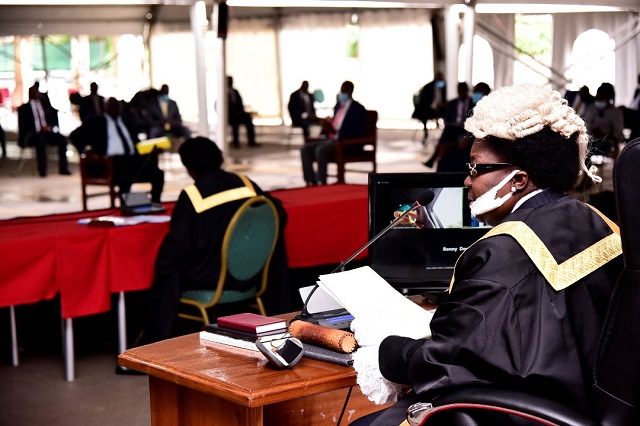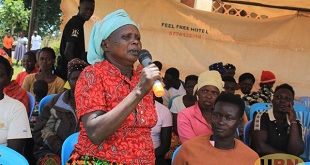
Kampala, Uganda | THE INDEPENDENT | Parliament has approved a government proposal to exempt taxes from items used by medical workers in the treatment of COVID-19. Also exempted are materials and inputs used in the manufacture of equipment for the prevention, protection and treatment of COVID-19 patients.
These include disposable medical face masks, re-usable face masks made of fabric, face shields and the raw materials used in making them. The others are non-woven surgical caps, protective goggles with indirect side ventilation, biohazard bags, disinfectants and sanitizers.
According to the State Minister for Planning David Bahati, the exemptions will retrospectively take effect on April 1, 2020, and end on June 30, 2021. Those manufacturers who had paid taxes on these products in the past few months will be allowed to reclaim their money from Uganda Revenue Authority –URA.
The decision was taken by Parliament while considering the Value Added Tax (Amendment) Bill, in which the government sought exemptions to reduce the cost of the items and help the government effort to protect health workers and the public against the pandemic.
President Yoweri Museveni returned the Bill to Parliament in June 2020 for reconsideration to cater for a stimulus package that he announced during his state of the nation address and budget speech for financial year 2020/2021.
Also approved by Parliament, is relief to lodges and hotel owners inside the radius of 50 kilometres of the boundaries of Kampala from payment of VAT.
Henry Musasizi, the Finance Committee chairperson said that the COVID-19 pandemic had affected the tourism sector to a large extent yet it is one of the biggest foreign exchange earners for Uganda and that the temporary relief was to help reduce the cost of accommodation.
When tasked by Speaker Rebecca Kadaga and a section of MPs why the relief was not covering all hotels across the country. David Bahati, the State Minister for Planning said that hotels outside Kampala already have several incentives provided under the law, a reason they were not considered for the COVID-19 VAT relief.
Parliament also exempted VAT from persons involved in the manufacture of chemicals for agricultural and industrial use, textiles, glassware, leather products, industrial machinery and electrical equipment, sanitary pads and diapers. Musasizi said that this is intended to extend incentives given to strategic sectors and others provided for in the Investment Code Act.
“The effect of the coronavirus pandemic has left many sectors affected of which agriculture and industry has not been spared. Most of the farmers supply schools, restaurants and hotels which have been closed for some time. This has affected the earnings of most people in Uganda, the bulk of which depends on subsistence agriculture,” he explained.
******
URN
 The Independent Uganda: You get the Truth we Pay the Price
The Independent Uganda: You get the Truth we Pay the Price



